Arts & Entertainment
Desperate housewife
Crumbling façade is setting for familial character study
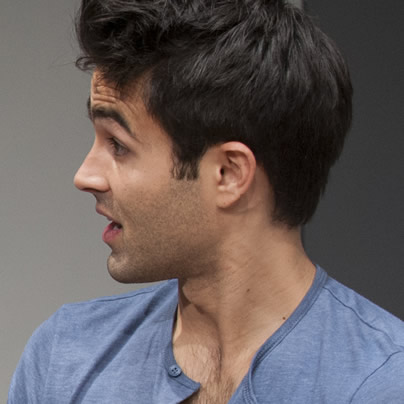
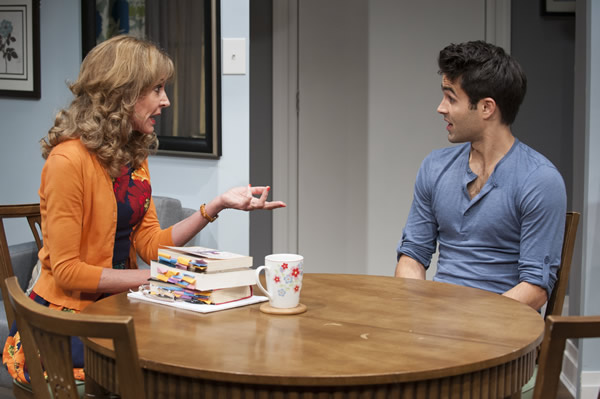
Christine Lahti as Carly and Anthony Bowden as her gay son Chad in ‘Pride in the Falls of Autrey Mill.’ (Photo by Margot Schulman; courtesy Signature Theatre)
‘Pride in the Falls of Autrey Mill’
Through Dec. 8
Signature Theatre
4200 Campbell Avenue, Arlington
703-573-SEAT
Fat is bad.
Lower paying professions suck.
And gay is worst of all.
These are the cardinal and frequently spoken rules of Carly, the uptight matriarch in Paul Downs Colaizzo’s terrific new play “Pride in the Falls of Autrey Mills.”
Now premiering at Signature Theatre, the young playwright’s latest effort staged by out director Michael Kahn, exposes the underbelly of the American suburban dream, showing exactly what it is that makes a privileged yet essentially miserable family tick.
The Falls of Autrey Mill is a neighborhood — a grandly named nouveau riche enclave in an unnamed southern city. Colaizzo imagines a place rife with leafy cul-de-sacs where quietly desperate lives unfold behind Roman-columned facades. It’s here that casually bigoted Carly (stage and screen veteran Christine Lahti) perseveres to distance herself from her tacky working class roots, striving to be today’s June Cleaver with the picture-perfect family. But as her two sons Tommy and Chad (played by Christopher McFarland and Anthony Bowden, respectively) move into adulthood and her mostly absent husband Louie (Wayne Duvall) tires of keeping up with the Jones and looks for satisfaction elsewhere, Carly loses the grip on the illusion she’s worked so hard to create, and the results are chaotic.
“Pride” takes place over several days preceding a visit from a photographer who’s scheduled to snap the family’s portrait for the community newsletter. Carly has won best flower garden in the pricey hood and the triumph must be chronicled. It’s a big deal for Carly, but her family isn’t cooperating. Home from college, Chad announces to his mother that he’s gay and has a boyfriend. The older son Tommy tells her that he’s forgoing law school to manage a Chuck E. Cheese type restaurant, a job that he finds personally fulfilling. And her husband is showing signs of wanting to leave home altogether. The play is about how Carly and the family process these revelations.
Like their shoddily made but well-appointed home (compliments of scenic designer James Noone), Carly’s family is also falling apart behind its impressive exterior. She may appear all sugary sweetness and light, but just below the surface she’s tough as nails. Further down she’s extremely vulnerable. Darkly handsome Bowden’s Chad comes off impatient and angry, ostensibly irritated by his parents’ inability to accept his sexuality. But he too isn’t exactly what he seems. Beneath his brusque shell lies a needy, love-deprived, mixed-up adolescent.
McFarland is endearingly funny as the overweight and forever hungry Tommy, who awkwardly walks about foraging for food with his hands bound in big white mitten-like bandages (the result of freakish household accidents). He wears his heart on his sleeve. He’s eager to connect with his parents, but he’s also careful to protect himself from their harsh judgment. And Duvall is perfect as the good ‘ol boy Louie stuck in a stale marriage.
From the moment the lights come up, you know exactly who Carly is. Lahti has taken the time to create a character not only with words but also her body and movements. She wrings the material for all its humor and pathos. It’s a commanding performance and a pleasure to watch.
But unlike so many icy WASP perfectionists (like the one Mary Tyler Moore played in the film “Ordinary People” for instance), Carly‘s heart isn’t entirely frozen. There might be hope for this family yet.
Following up “Torch Song” at Studio Theatre, “Pride” is director Kahn’s second local (and excellent) effort this season outside of his usual domain, the Shakespeare Theatre Company. Though very different, both plays explore family and being gay.
Last season at Signature, playwright Colaizzo garnered big attention with “Really Really,” his resoundingly praised take on complacent young adults living in New York. With “Pride” he further cements his reputation. Frequently funny, but also upsetting and at a couple points heartrendingly poignant, “Pride” proves a fully satisfying theatrical experience.
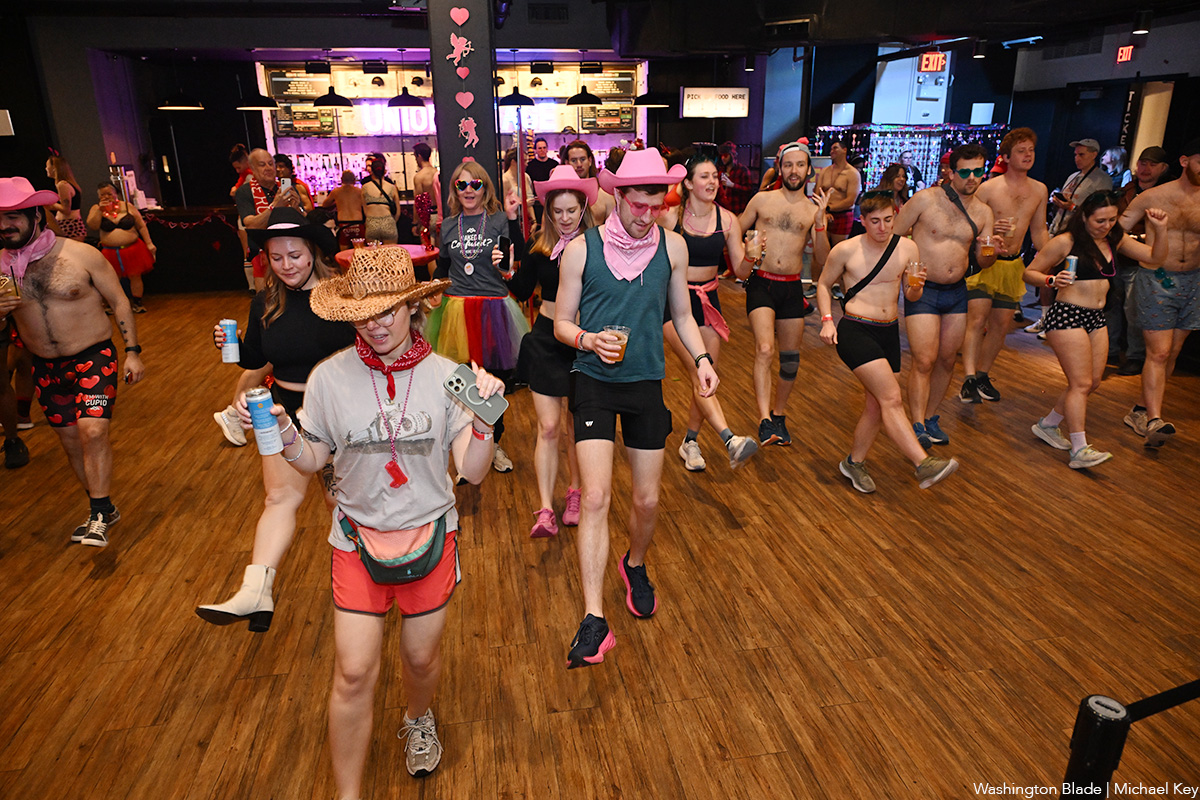
Cupid’s Undie Run, an annual fundraiser for neurofibromatosis (NF) research, was held at Union Stage and at The Wharf DC on Saturday, Feb. 21.
(Washington Blade photos by Michael Key)
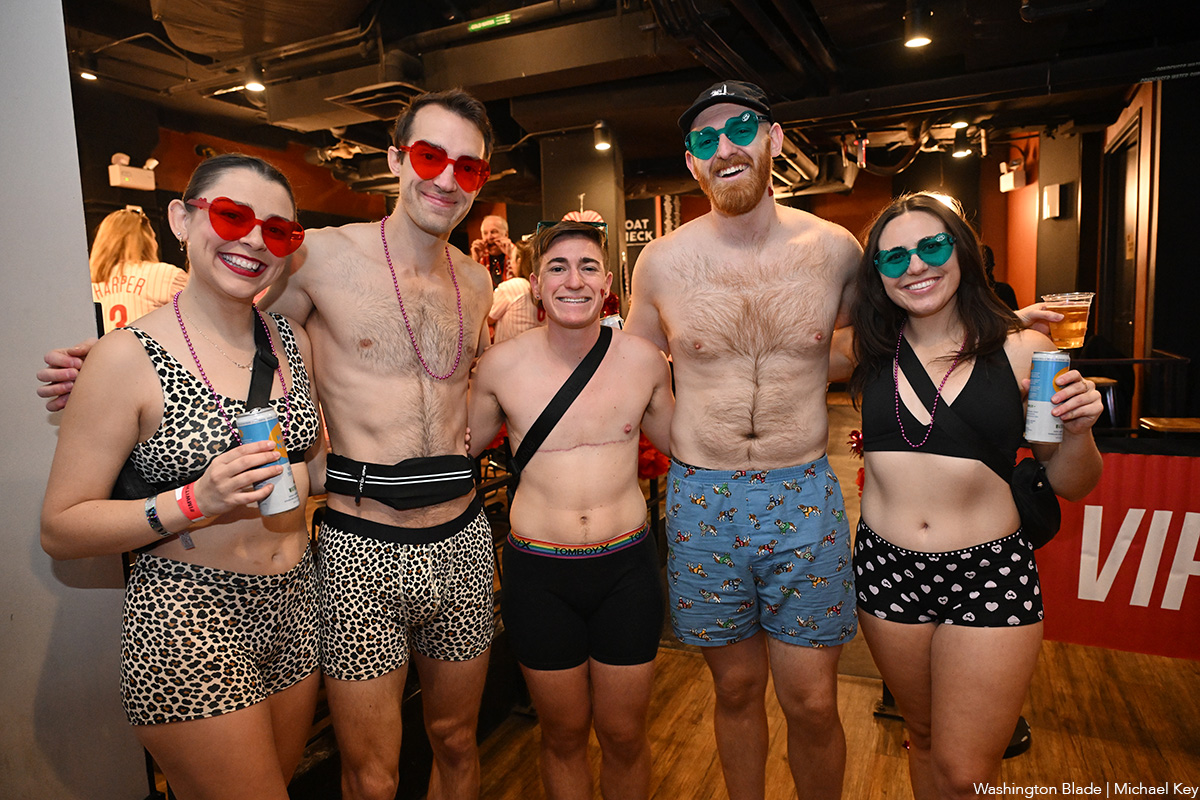
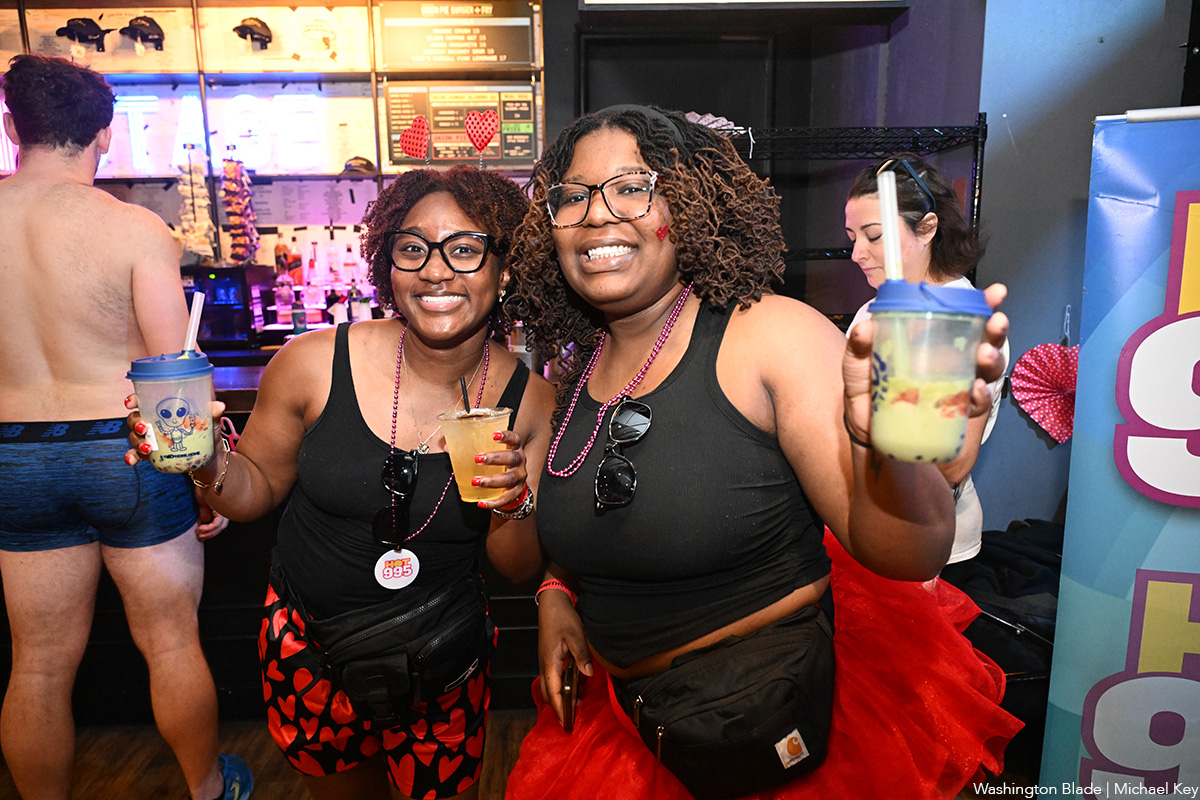
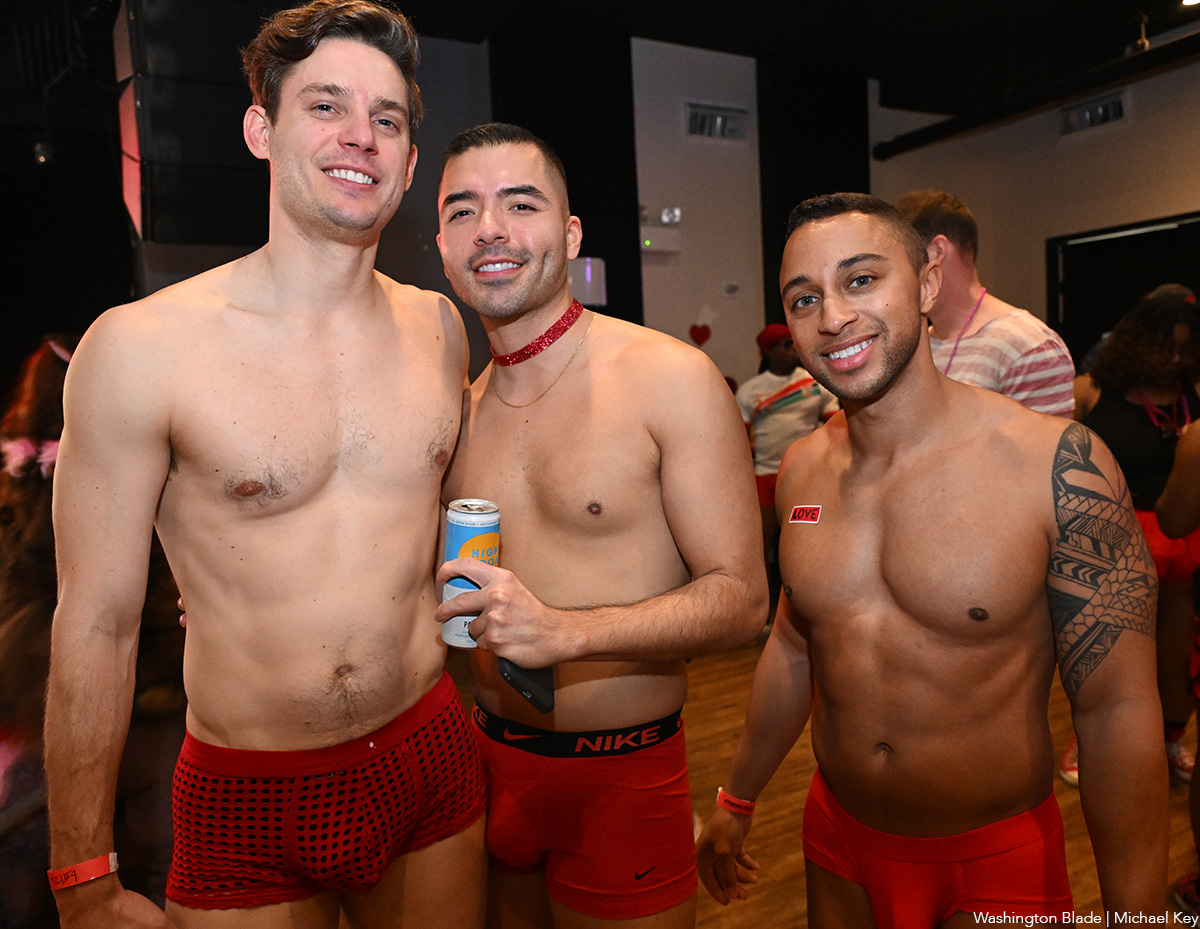
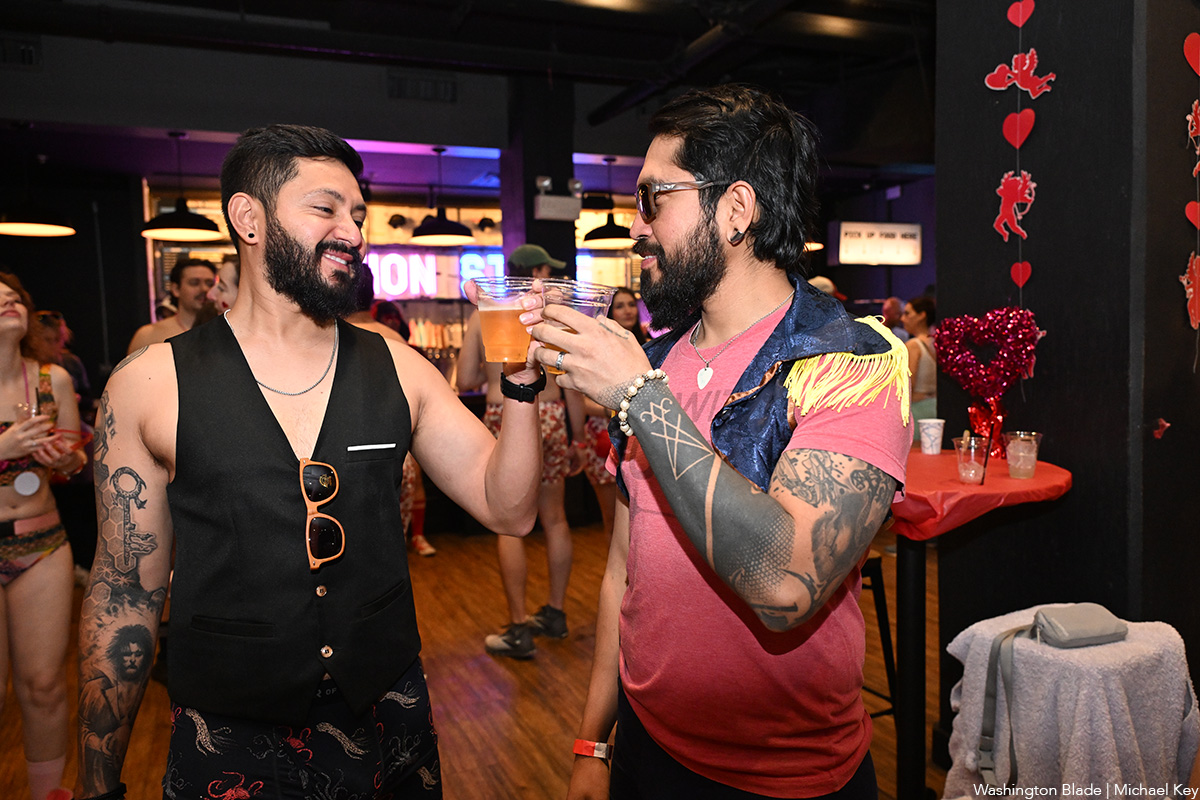
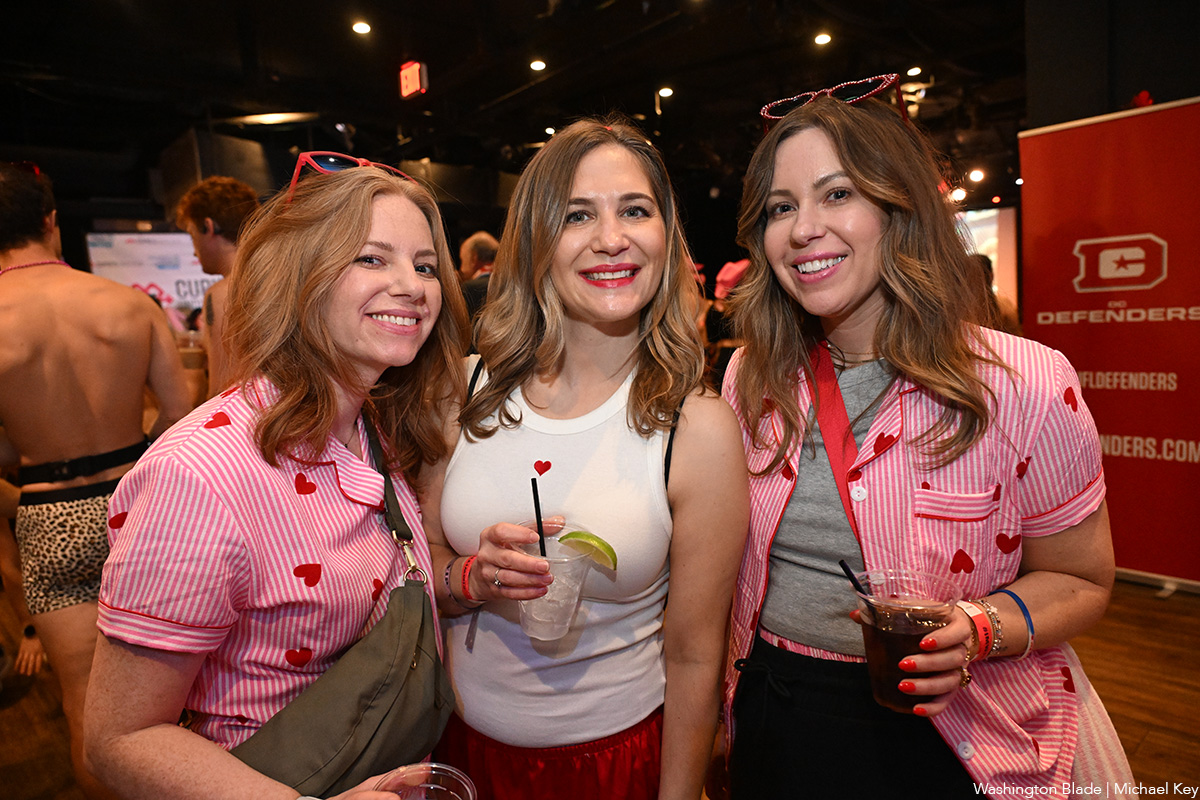
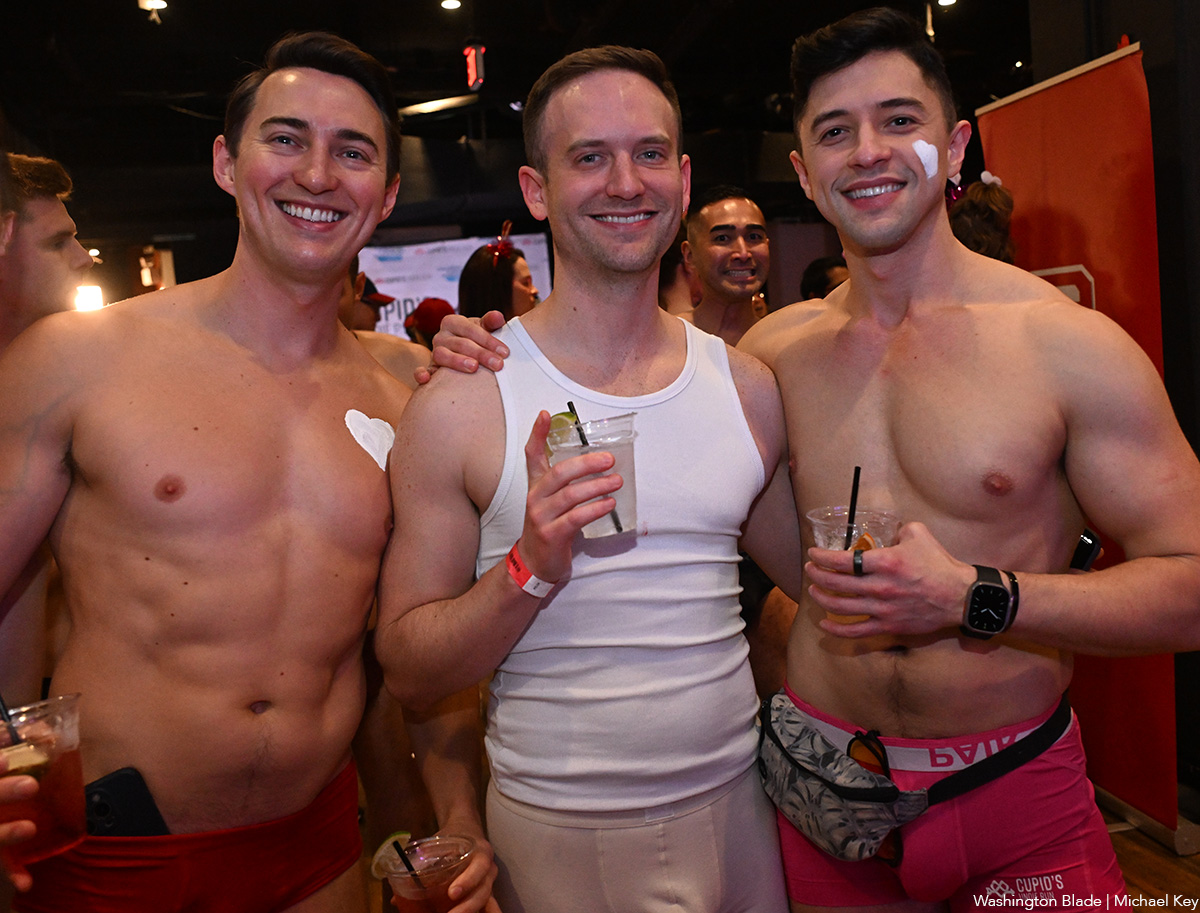
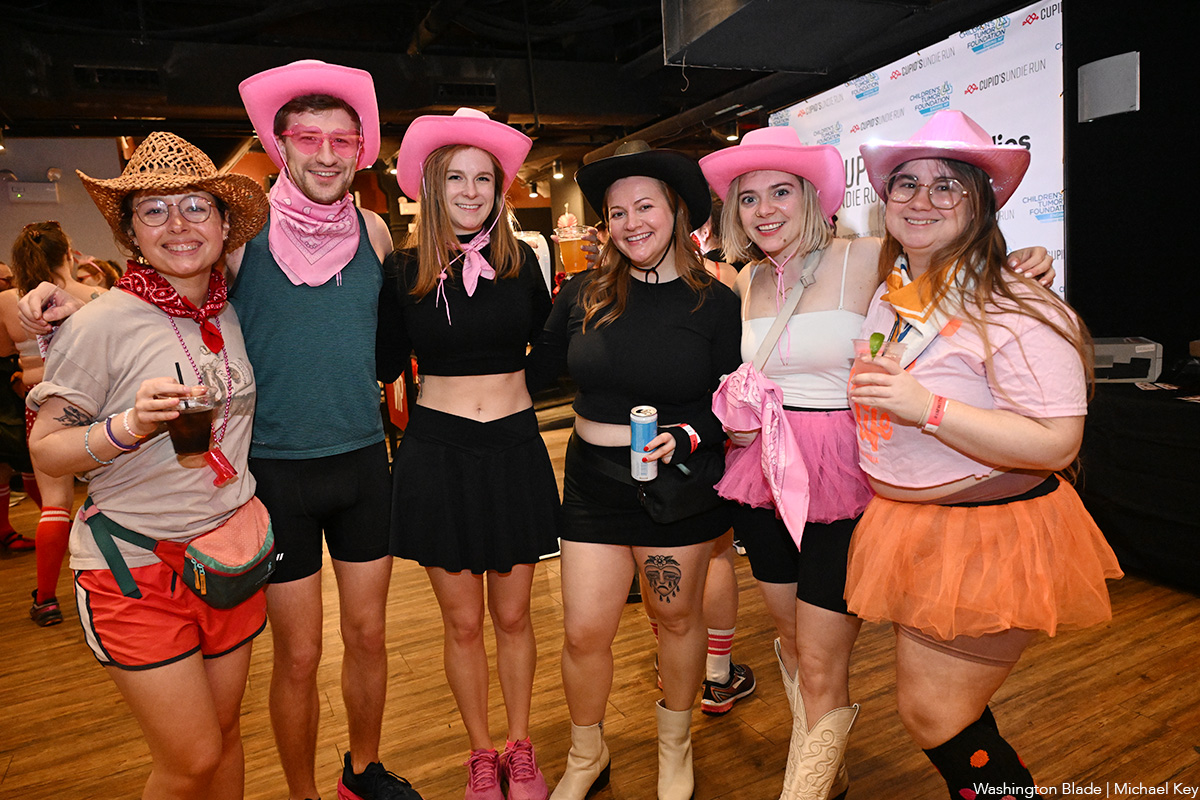
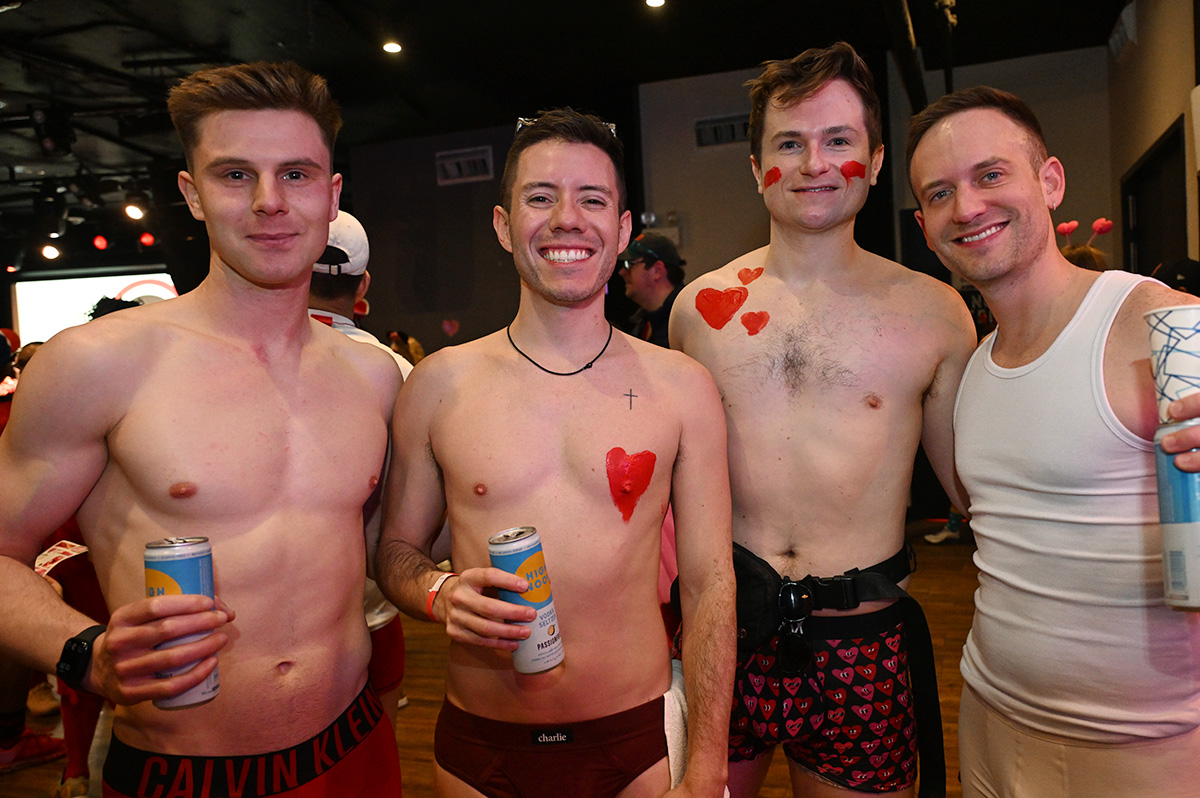
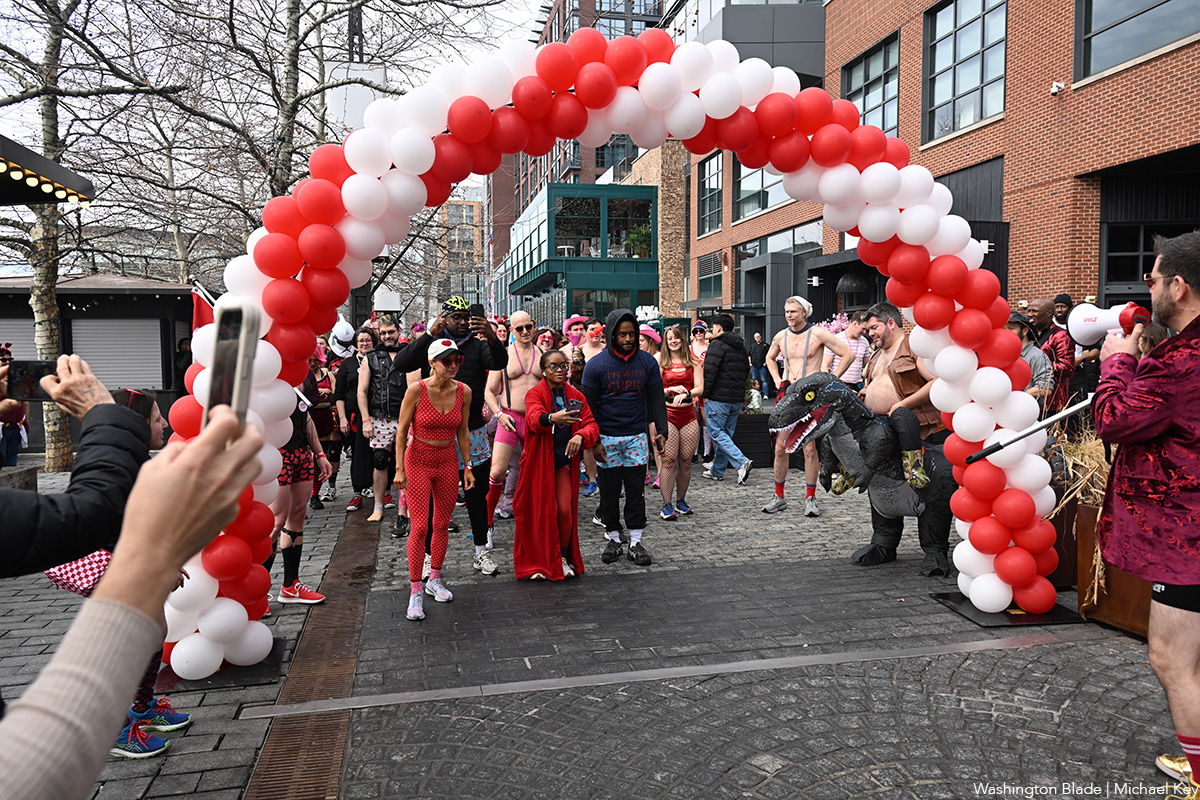
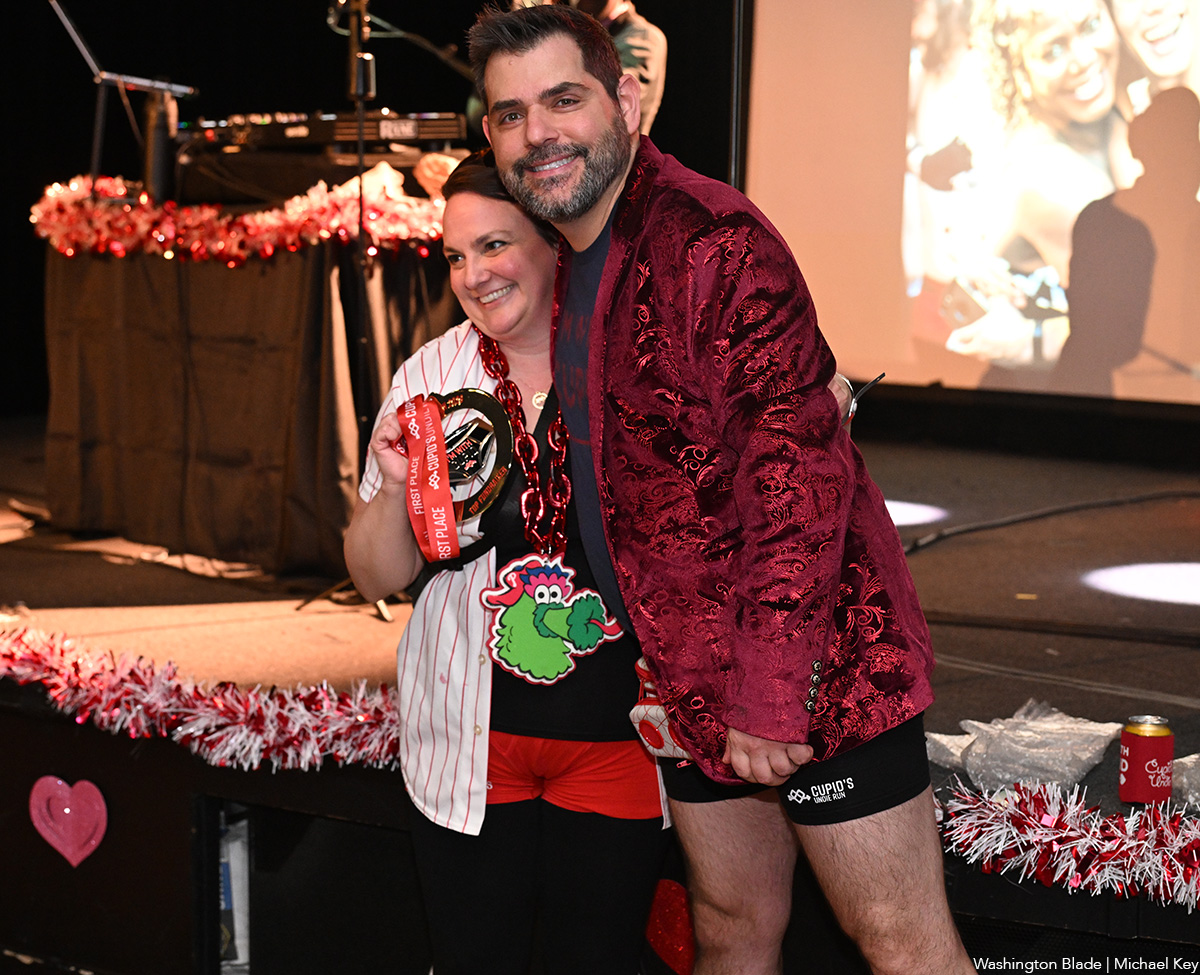
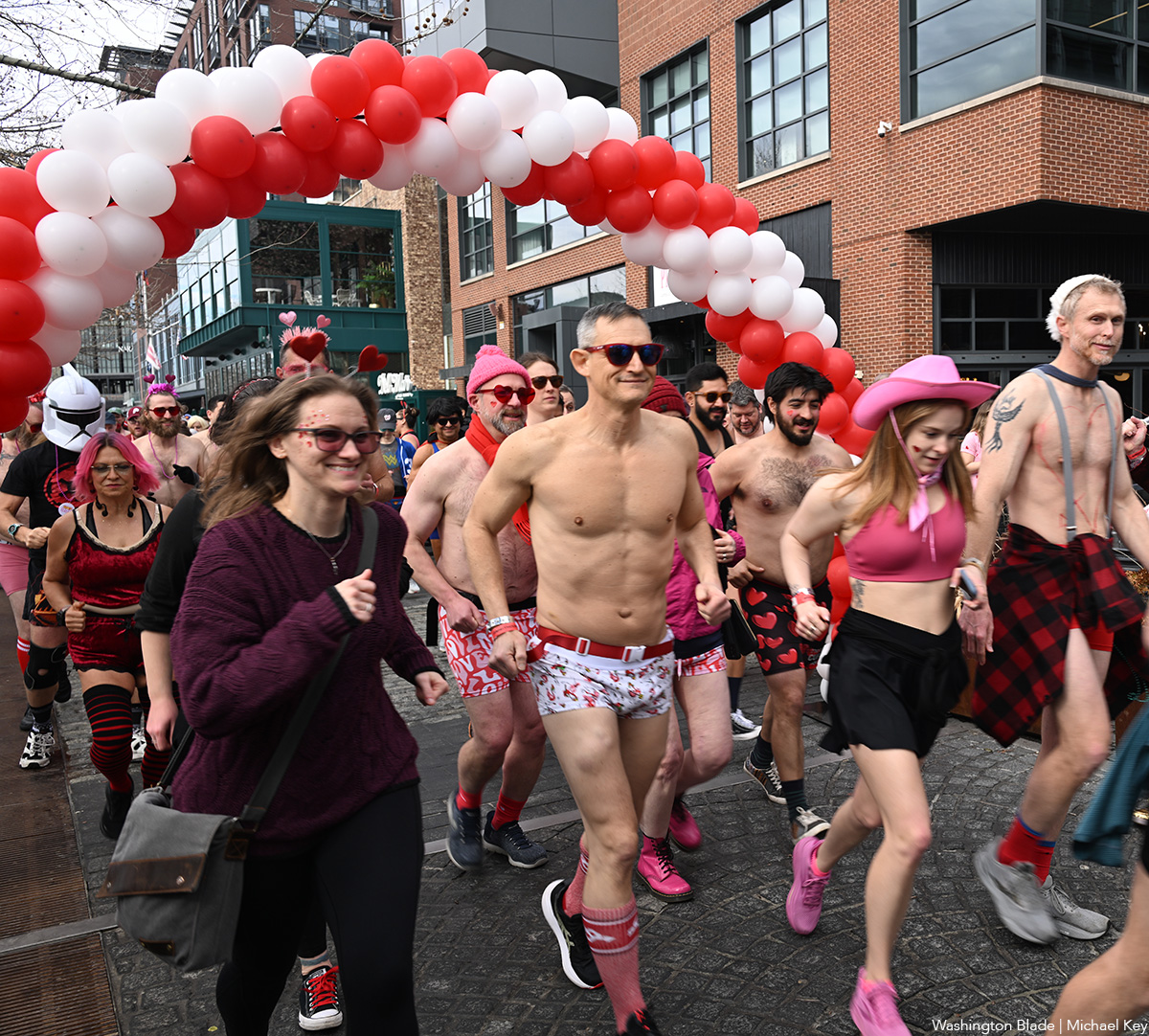
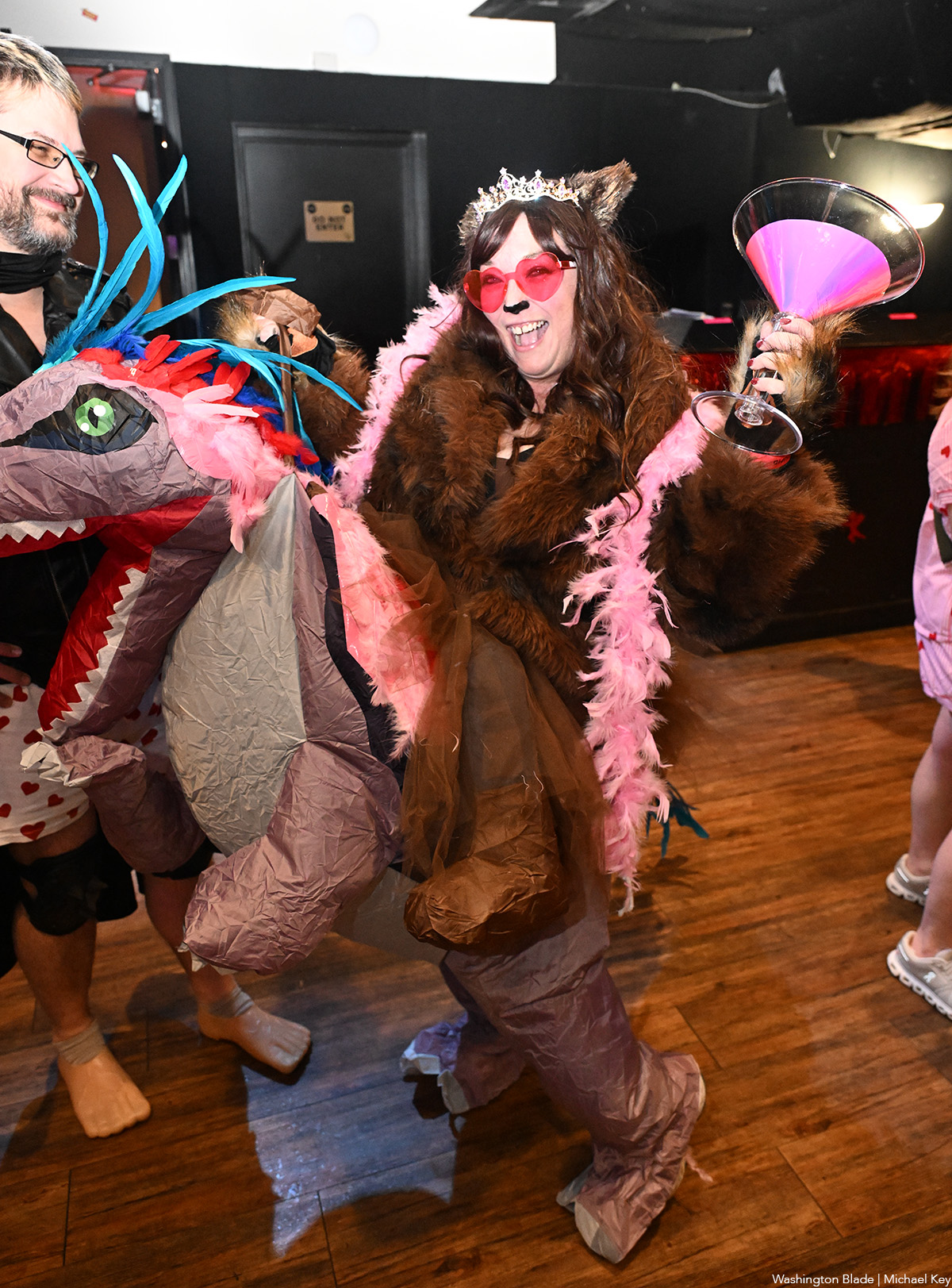
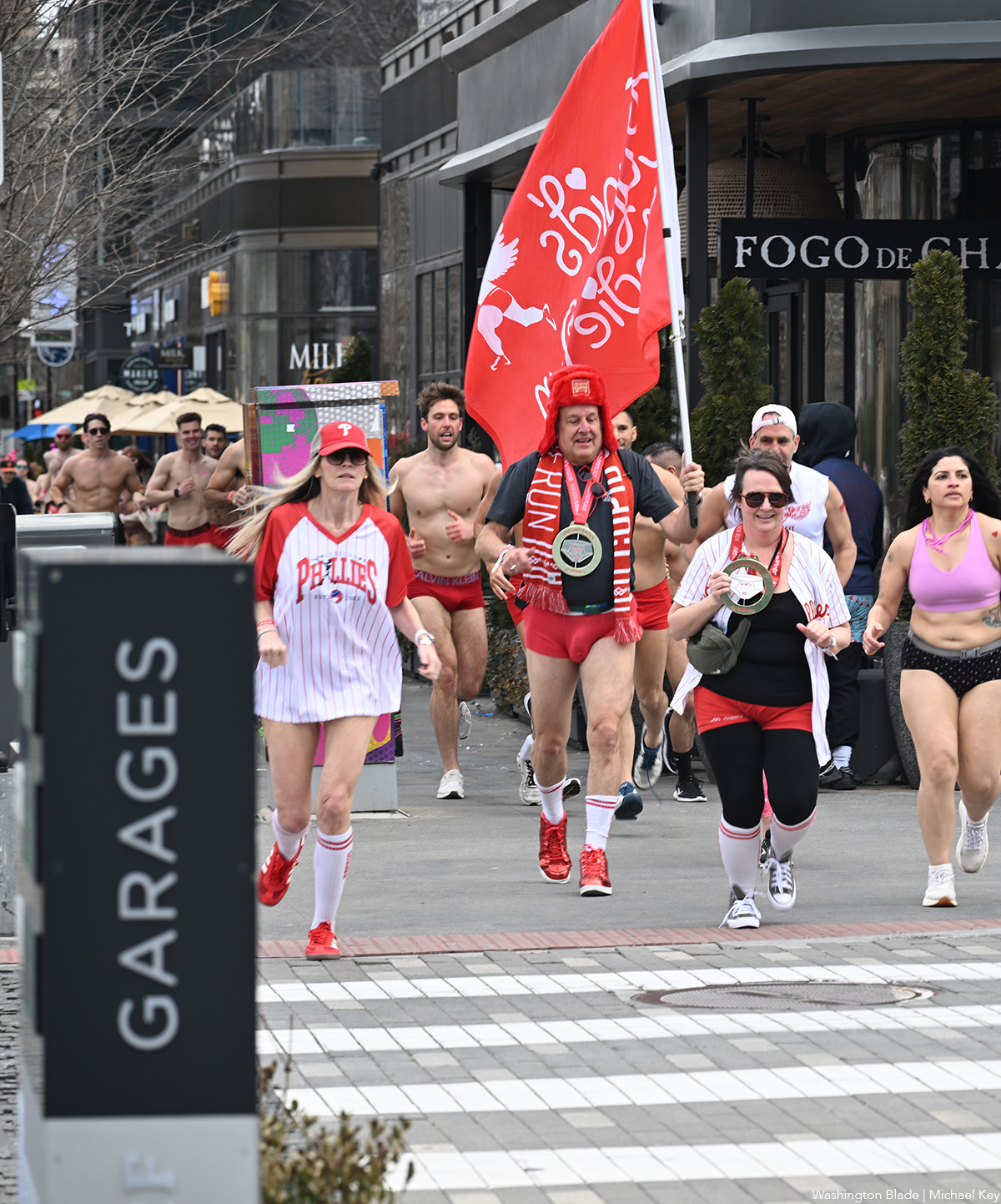
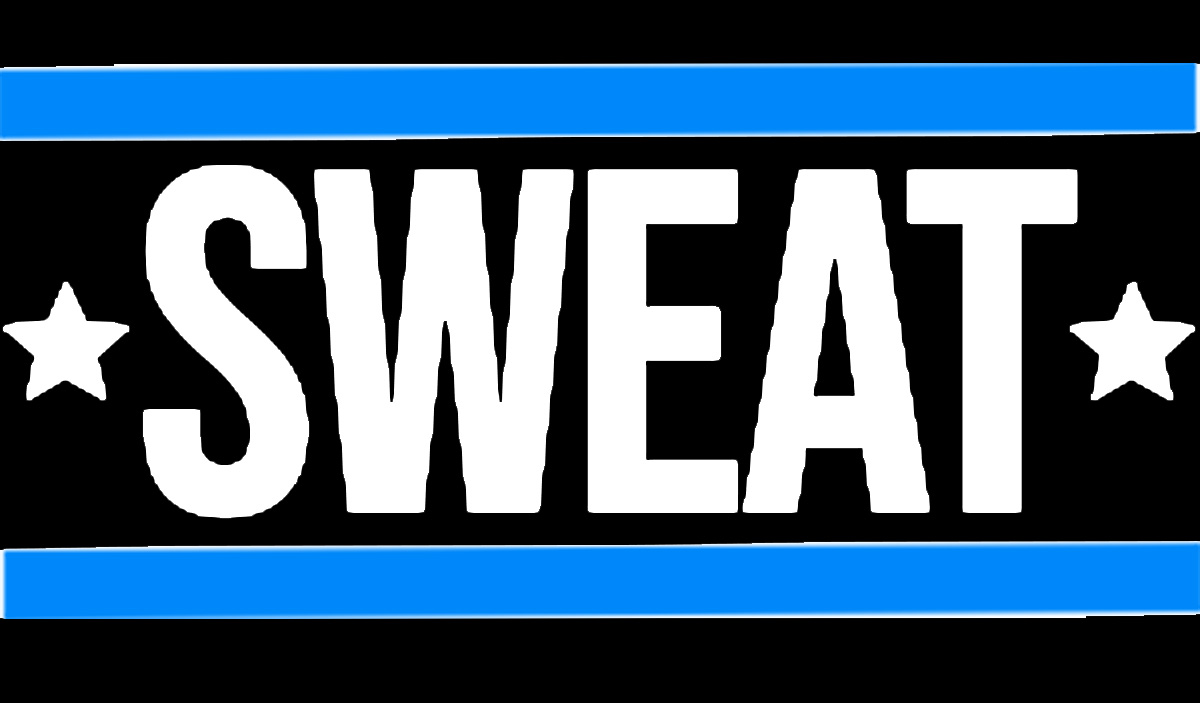
Sweat DC is officially expanding to Shaw, opening a new location at 1818 7th St., N.W., on Saturday, March 28 — and they’re kicking things off with a high-energy, community-first launch event.
To celebrate, Sweat DC is hosting Sweat Fest, a free community workout and social on Saturday, March 14, at 10 a.m. at the historic Howard Theatre. The event features a group fitness class, live DJ, local food and wellness partners, and a mission-driven partnership with the Open Goal Project, which works to expand access to youth soccer for players from marginalized communities.
For more details, visit Sweat DC’s website and reserve a spot on Eventbrite.

Friday, Feb. 20
Center Aging Monthly Luncheon with Yoga will be at noon at the D.C. LGBTQ+ Community Center. Email Mac at [email protected] if you require ASL interpreter assistance, have any dietary restrictions, or questions about this event.
Trans and Genderqueer Game Night will be at 7 p.m. at the D.C. Center. This will be a relaxing, laid-back evening of games and fun. All are welcome! We’ll have card and board games on hand. Feel free to bring your own games to share. For more details, visit the Center’s website.
Go Gay DC will host “First Friday LGBTQ+ Community Social” at 7 p.m. at Hotel Zena. This is a chance to relax, make new friends, and enjoy happy hour specials at this classic retro venue. Attendance is free and more details are available on Eventbrite.
Saturday, Feb. 21
Go Gay DC will host “LGBTQ+ Community Brunch” at 11 a.m. at Freddie’s Beach Bar & Restaurant. This fun weekly event brings the DMV area LGBTQ community, including allies, together for delicious food and conversation. Attendance is free and more details are available on Eventbrite.
LGBTQ People of Color will be at 7 p.m. on Zoom. This peer support group is an outlet for LGBTQ People of Color to come together and talk about anything affecting them in a space that strives to be safe and judgement free. There are all sorts of activities like watching movies, poetry events, storytelling, and just hanging out with others. For more information and events, visit thedccenter.org/poc or facebook.com/centerpoc.
Sunday, Feb. 22
Queer Talk DC will host “The Black Gay Flea Market” at 1 p.m. at Doubles in Petworth. There will be more than 15 Black queer vendors from all over the DMV in one spot. The event’s organizers have reserved the large back patio for all vendors, and the speak easy for bar service, which will be serving curated cocktails made just for the event (cash bar.) DJ Fay and DJ Jam 2x will be spinning the entire event. For more details, visit Eventbrite.
Monday, Feb. 23
“Center Aging: Monday Coffee Klatch” will be at 10 a.m. on Zoom. This is a social hour for older LGBTQ adults. Guests are encouraged to bring a beverage of choice. For more information, contact Adam at [email protected].
Tuesday, Feb. 24
Coming Out Discussion Group will be at 7 p.m. on Zoom. This is a safe space to share experiences about coming out and discuss topics as it relates to doing so — by sharing struggles and victories the group allows those newly coming out and who have been out for a while to learn from others. For more details, visit the group’s Facebook.
Genderqueer DC will be at 7 p.m. on Zoom. This is a support group for people who identify outside of the gender binary, whether you’re bigender, agender, genderfluid, or just know that you’re not 100 percent cis. For more details, visit genderqueerdc.org or Facebook.
Wednesday, Feb. 25
Job Club will be at 6 p.m. on Zoom upon request. This is a weekly job support program to help job entrants and seekers, including the long-term unemployed, improve self-confidence, motivation, resilience and productivity for effective job searches and networking — allowing participants to move away from being merely “applicants” toward being “candidates.” For more information, email [email protected] or visit thedccenter.org/careers.
Asexual and Aromantic Group will meet at 7 p.m. on Zoom. This is a space where people who are questioning this aspect of their identity or those who identify as asexual and/or aromantic can come together, share stories and experiences, and discuss various topics. For more details, email [email protected].
Thursday, Feb. 26
The DC Center’s Fresh Produce Program will be held all day at the DC Center. To be more fair with who is receiving boxes, the program is moving to a lottery system. People will be informed on Wednesday at 5 p.m. if they are picked to receive a produce box. No proof of residency or income is required. For more information, email [email protected] or call 202-682-2245.
Virtual Yoga Class will be at 7 p.m. on Zoom. This free weekly class is a combination of yoga, breathwork and meditation that allows LGBTQ community members to continue their healing journey with somatic and mindfulness practices. For more details, visit the DC Center’s website.
-

 National5 days ago
National5 days agoTrump falsely links trans people to terrorism
-

 Virginia5 days ago
Virginia5 days agoFellow lawmakers praise Adam Ebbin after Va. Senate farewell address
-

 National4 days ago
National4 days agoLGBTQ activists mourn the Rev. Jesse Jackson
-

 Massachusetts4 days ago
Massachusetts4 days agoEXCLUSIVE: Markey says transgender rights fight is ‘next frontier’




















